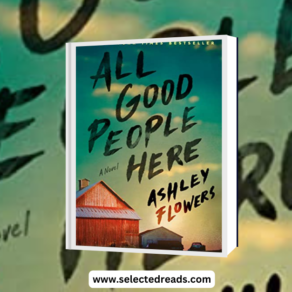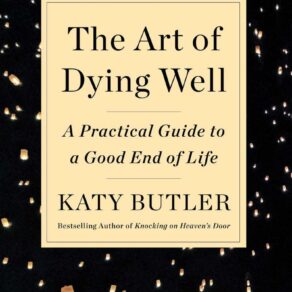So You Want to Talk about Race review is the topic of our blog post today
Given the growing importance and relevance of concepts such as race, diversity, and inclusion in our society, I found myself compelled to explore these themes more deeply. It’s with this intention that I delved into “So You Want to Talk About Race” by Ijeoma Oluo, a book that offers candid insights and practical guidance on navigating these often challenging conversations. In crafting my review, I’ve not only relied on my personal reading and reflections on the book but also drawn insights from two well-regarded reviews by School Library Journal and Kirkus Reviews.
It’s my hope that this review will provide you with valuable perspectives and encourage you to engage more closely with these vital topics. If you’re interested in further exploring diversity and inclusion, particularly within the context of education, I invite you to read my other posts on books on diversity and inclusion for teachers, as well as my specially curated selection of books on diversity and inclusion for kids. Together, we can embark on a journey of understanding, empathy, and positive change.
Related: Strategies and Tips to Talk about Race in Class
So You Want to Talk about Race Summary
At a critical moment when racial injustice and white supremacy are at the forefront of global consciousness, “So You Want to Talk About Race” by Ijeoma Oluo serves as an indispensable guide to engaging in meaningful dialogues about race. Addressing this complex subject, the author does not shy away from difficult or uncomfortable topics.
The book opens with a candid exploration of how racism is not merely an individual act of prejudice but a complex, systemic issue that pervades every corner of American life. Through personal anecdotes, historical contexts, and well-researched insights, Oluo paints a vivid picture of the multifaceted nature of racism in contemporary society.
She then delves into specific areas where racial inequalities are most pronounced, such as police brutality, cultural appropriation, and the pervasive myth of the model minority. Each subject is handled with sensitivity and rigor, breaking down misconceptions and providing readers with a nuanced understanding.
What makes this book particularly engaging is its practical approach. Oluo offers guidance on how to approach racially charged situations, such as confronting a boss’s racist jokes or discussing white privilege with a friend who might not recognize it. These practical examples serve as stepping stones for readers who might feel overwhelmed or uncertain about how to initiate or participate in these essential conversations.
In addition to examining external racial dynamics, Oluo emphasizes the importance of introspection and self-examination. She encourages readers to reflect on their own biases and privileges, understanding how these factors can influence their perceptions and interactions.
Furthermore, the book emphasizes the importance of empathy, listening, and patience in fostering constructive dialogue. Rather than providing simple answers, Oluo equips readers with tools to approach conversations about race with openness, humility, and a willingness to learn.
“So You Want to Talk About Race” transcends a mere theoretical discussion of race. It is a heartfelt call to action, urging readers to engage with the deeply entrenched racial disparities in society actively. With its blend of personal stories, historical context, practical guidance, and thought-provoking insights, the book is not only a comprehensive guide to understanding race but a rallying cry for change and hope in a world grappling with racial inequities. It’s an essential read for anyone interested in fostering a more inclusive and compassionate society.
So You Want to Talk about Race review
In “So You Want to Talk About Race,” Ijeoma Oluo invites readers into a candid and necessary conversation about race, acknowledging that it’s a subject fraught with potential missteps but urging engagement nonetheless. The School Library Journal highlights Oluo’s approach as “slim but potent,” weaving personal accounts with research, creating an insightful guide that refuses to sugarcoat the realities of racial dynamics (Dar, 2018). Kirkus Reviews describes the book as a feisty debut, emphasizing the sharp, no-nonsense answers provided by Oluo, who addresses common questions and misconceptions about racism.
Oluo’s identity as a black, queer, middle-class woman adds richness and authenticity to the narrative. Her personal experience informs her understanding of racism, not only as abstract concepts but as a living, breathing part of everyday life. This perspective resonates deeply with the reader, making the book’s contents more approachable and relatable.
The book’s strength lies in its balance of theory and practice. Oluo explains intricate concepts like privilege and intersectionality in an accessible manner while also offering practical advice for confronting racism (Dar, 2018). Her dedication to educating readers without letting them off the hook is lauded for being profound yet deeply accessible.
Oluo’s call to action in the concluding part of the book is particularly inspiring. She not only provides readers with the intellectual tools to understand race but also empowers them to take meaningful steps towards reform in various aspects of society, such as schools, unions, local governments, and personal behaviors (Kirkus Reviews, 2017).
However, the book is not without its challenges. The very nature of the conversation means that readers are likely to feel uncomfortable, challenged, and perhaps even offended at times. But as Oluo herself notes, that’s part of the process. Engaging with this discomfort is essential to genuine understanding and growth.
In summary, “So You Want to Talk About Race” by Ijeoma Oluo is an essential read for anyone willing to engage with the complex issue of race. With its blend of personal insights, well-researched data, and actionable steps, it serves as both an enlightening guide and a call to action. It’s a timely and vital resource for our current societal climate, one that embraces the challenges of honest conversation and leads readers towards meaningful change. If there were ever a time for a book like this, it is now.
Final thoughts
The urgency of the conversation surrounding race, diversity, and inclusion cannot be overstated. “So You Want to Talk About Race” by Ijeoma Oluo offers a lucid, powerful, and actionable guide to fostering meaningful dialogues on these critical issues. With insights drawn from various sources, including my own reading experience, this book serves as an essential tool for educators, parents, and anyone committed to social justice. It not only challenges our existing beliefs but also equips us with the knowledge and understanding to enact change.
References
- Dar, M. (2018). OLUO, Ijeoma. So You Want To Talk About Race [Review of OLUO, Ijeoma. So You Want To Talk About Race]. School Library Journal, 64(5), 111–. Library Journals, LLC.
- So You Want to Talk about Race. (2017). Kirkus Reviews, LXXXV(21). Kirkus Media LLC.







